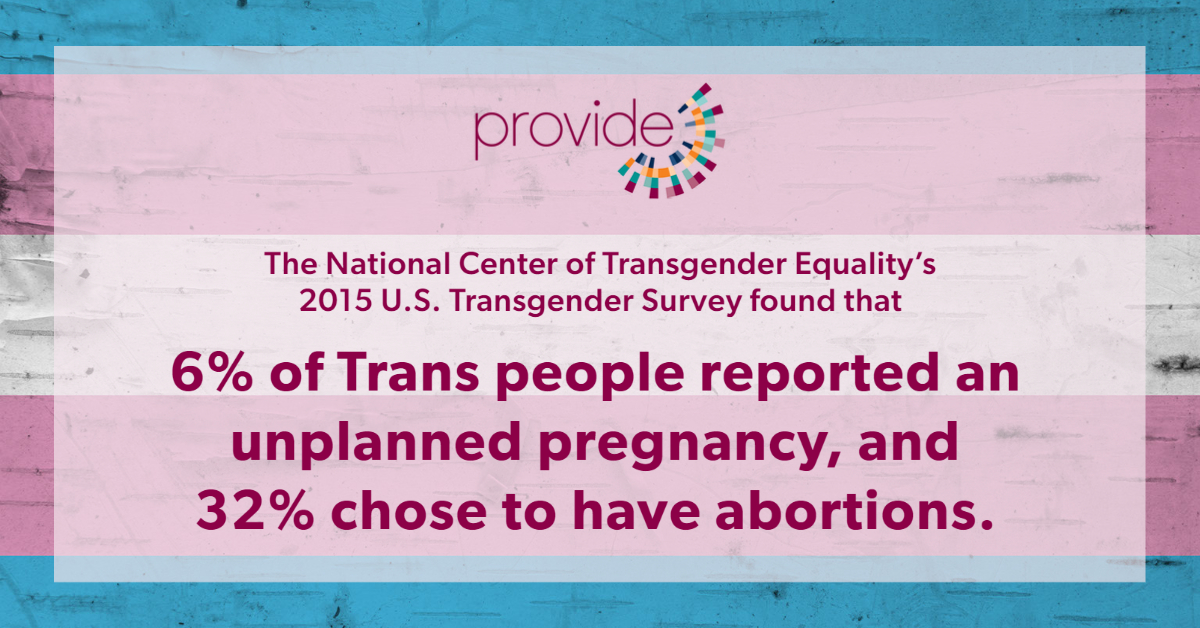Originally published on February 23, 2018. Last revised September 20, 2023.
Talking about abortion can be tough. While we’re all entitled to our own opinions, we’re not entitled to our own facts. Knowing the answers to common questions about abortion can help you offer the information and support your clients need to make the best decisions for themselves and their families.
*Whenever possible, we recommend talking about people who have abortions, which includes transgender and nonbinary people. The most robust data we have is only available for cis women.
- Is abortion safe?
Abortion is an extremely safe procedure when performed under proper medical conditions. Fewer than 1% of all U.S. abortion patients experience a major complication.[1] A committee of the National Academies of Sciences, Engineering and Medicine reviewed the available evidence and confirmed in a 2018 report that abortion is safe and effective.[2] While some people opposed to abortion have made false claims about the links between abortion and cancer or other health issues, exhaustive reviews by panels convened by the U.S. and UK governments have concluded that there is no association between abortion and breast cancer. There is also no indication that abortion is a risk factor for other cancers.[3] Further research has shown that abortion does not increase a person’s chance of depression or impact their future fertility.[4]
People who have abortions come from all racial, ethnic, socioeconomic, and religious backgrounds. Experts estimate that one in four women* of reproductive age will have an abortion by the age of 45.[5] The typical abortion patient is already a parent, is in their late 20s, has attended some college, has a low income, is unmarried, is in their first six weeks of pregnancy, and is having their first abortion.[6]
- Who provides abortions?
Most abortions are provided by clinics that specialize in abortion and reproductive healthcare. Abortions are also provided in private physician offices, hospitals, and non-specialized (primary care) clinics. Doctors, nurses, midwives, doulas, and medical support staff all play a role in providing abortion care.[7]
- Where is abortion available?
In the U.S., abortion is legally available in some states, but not in others. After the Supreme Court overturned Roe v. Wade in June 2022, 14 states (AL, AR, ID, IN, KY, LA, MS, MO, ND, OK, SD, TN, TX, WV) began enforcing total bans on abortion, and seven states (AZ, FL, GA, NE, NC, SC, UT) began enforcing laws that severely restrict abortion access. Abortion is still legal and available in the other 29 states.[8] In some areas, people can access abortion medication through a licensed telehealth provider, such as Carafem, Hey Jane, or Honeybee Health. Some abortion seekers may also choose to self-manage their abortion using pills sourced from organizations like Plan C pills.
- How much does an abortion cost?
Cost varies depending on a variety of factors, including the type of abortion needed, how far along the pregnancy is, state bans or restrictions, distance to the nearest provider, health insurance coverage, and access to other types of financial assistance through abortion funds. In 2021, the average out-of-pocket cost of abortion services in the first trimester was $568 for medication abortion and $625 for procedural abortion.[9] Costs increase later in pregnancy and can range from $750 earlier in the second trimester up to $12,000 later in the second trimester.[10], [11]
- What is medication abortion?
Medication abortion involves the administration of drugs (misoprostol alone or in combination with mifepristone) to end a pregnancy. Medication abortion is generally an option only in the first 11 weeks (77 days) of pregnancy.[12] Medication is dispensed by a licensed provider in a clinic (or by mail, if using a telehealth option) and then the pregnancy is passed at home. It usually takes 24-48 hours for the pregnancy to pass.
- What’s the difference between emergency contraception (EC) and medication abortion?
EC is a form of birth control that prevents pregnancy after unprotected sex. It can be taken up to five days after unprotected sex. EC doesn’t end a pregnancy and won’t work if you’re pregnant. Some types of EC, like Plan B One-Step, can be purchased over the counter; others, like ella, require a prescription.
Medication abortion (also called “the abortion pill”) ends a pregnancy. In places where abortion is legal, medication abortion is an option up to 11 weeks gestation. Unlike EC, medication abortion cannot be obtained over the counter in the U.S.; medication abortion can only legally be dispensed by a licensed provider in clinic or via telehealth. Some people, however, may source abortion pills without a provider, using resources like Plan C pills.[13]
- Why do people have abortions?
People have abortions for all sorts of reasons, and many have more than one. The most common reasons people give are the need to care for existing children, financial concerns about having a child, work or school commitments, concerns about their relationship, or becoming a single parent.[14] No one should be judged or punished for having an abortion.
- Why do people have abortions later in pregnancy?
In 2020, 6% of reported abortions took place in weeks 14-20 of pregnancy, and 1% occurred in week 21 or later. People obtain abortions later in pregnancy for reasons that include delayed knowledge of the pregnancy, lack of information about access to abortion care, transportation difficulties, lack of insurance coverage, financial constraints, fetal anomalies, and life-threatening health conditions that arise later in pregnancy.[14]
- How common is abortion?
The exact number of abortions each year is difficult to determine because the figures reported only include abortions conducted in a clinical setting and do not account for the use of medication abortion obtained outside of clinical settings. The best available data suggests that 1 in 4 women* in the U.S. will have at least one abortion during their reproductive years.[15]
- Do people who already have children choose to get abortions?
About six in 10 people who get abortions have one child already. Half of them have two or more children.[16]
- Which age group has the most abortions?
57% of people obtaining abortion care are 20-29 years of age.[16]
- Do people who are religious get abortions?
Research has consistently shown that most people who get an abortion have a religious affiliation. 24% of abortion patients identified as Catholic, 17% as mainline Protestant, and 13% as evangelical Protestant; 8% said they belonged to a faith other than Christianity.[17]
- What happens when people who want abortions are not able to get them?
Lack of access to abortion can create economic hardship and insecurity that lasts for years. The Turnaway Study found that people who were denied an abortion had almost 4x greater odds of a household income below the federal poverty level and 3x greater odds of being unemployed, resulting in an increased likelihood that they didn’t have enough money to pay for basic family necessities like food, housing, and transportation. Continuing an unwanted pregnancy and giving birth is associated with more serious health problems than abortion. Existing children of people denied abortions are less likely to achieve developmental milestones than the existing children of people who received abortions.[18]
- How has Dobbs affected abortion access?
The U.S. abortion landscape continues to shift rapidly in the wake of the Supreme Court’s decision to overturn Roe v. Wade in June 2022. As of January 2023, an estimated 29% of women* of reproductive age were living in a state without an abortion provider. State abortion bans have been devastating for both patients and providers, with the worst impacts falling on marginalized groups who already face barriers to health care (especially young people, BIPOC people, and LGBTQ+ people). Abortion bans have emboldened police and other authorities to target, surveil, arrest, and jail people they suspect of having or providing abortions.
With fewer abortion options available, abortion seekers have unsurprisingly turned to traveling for out-of-state abortions[19], telehealth options where those are available, and self-managed abortion. Thousands of others unable to access abortion have remained pregnant against their will.
As a result of abortion bans, patients have also experienced higher rates of pregnancy complications and delays in care, including care for miscarriages and life-threatening ectopic pregnancies. In some areas, hospitals have shut down their maternity wards because of their state abortion laws.
- What else should I know about how abortion intersects with other client needs?
Pregnant people are whole people who deserve to receive medically accurate information about their options and compassionate care. Seeking an abortion may be complicated by other stigmatized health conditions, such as living with HIV or substance use disorder. People may also have safety concerns related to intimate partner violence or reproductive coercion. It’s important to know how to support patients of all backgrounds who may experience medical racism, provider bias, or heightened threats of criminalization. You can better advocate for the needs of your patients or clients by learning about provider bias, the ways stigma impacts marginalized populations, and how reproductive health intersects with your specific system of care.


